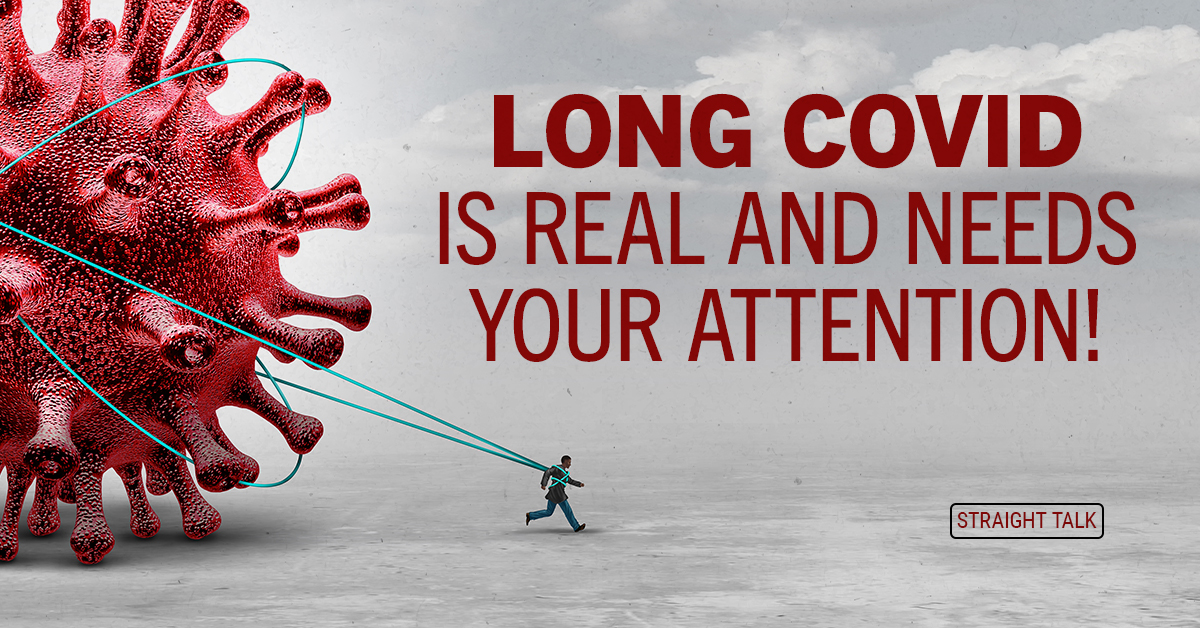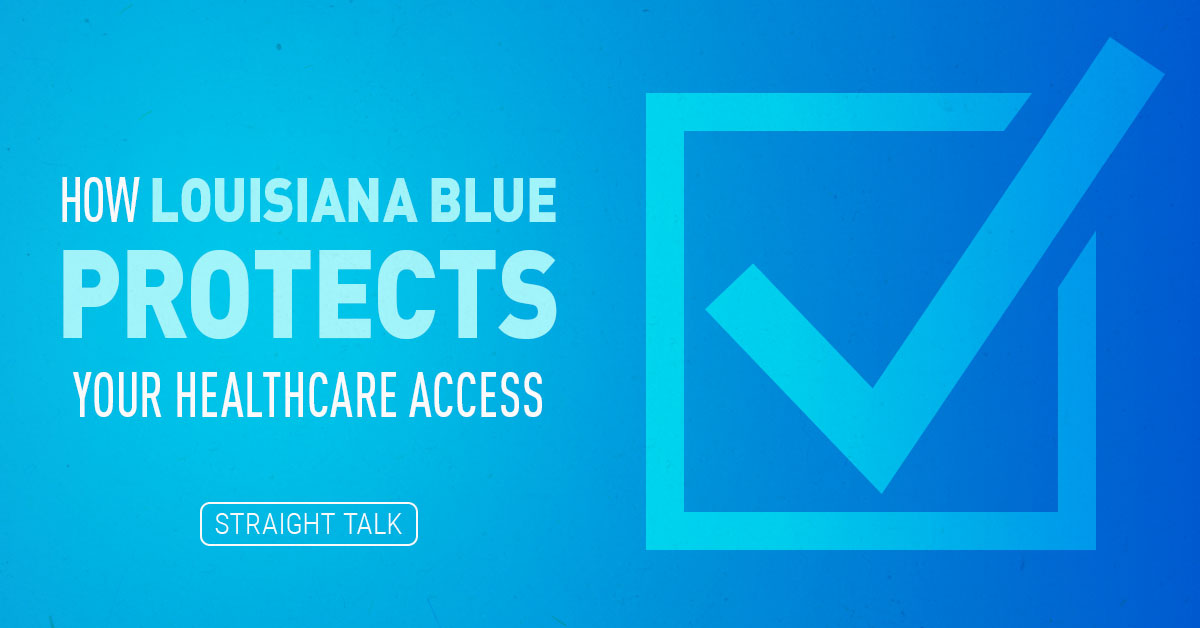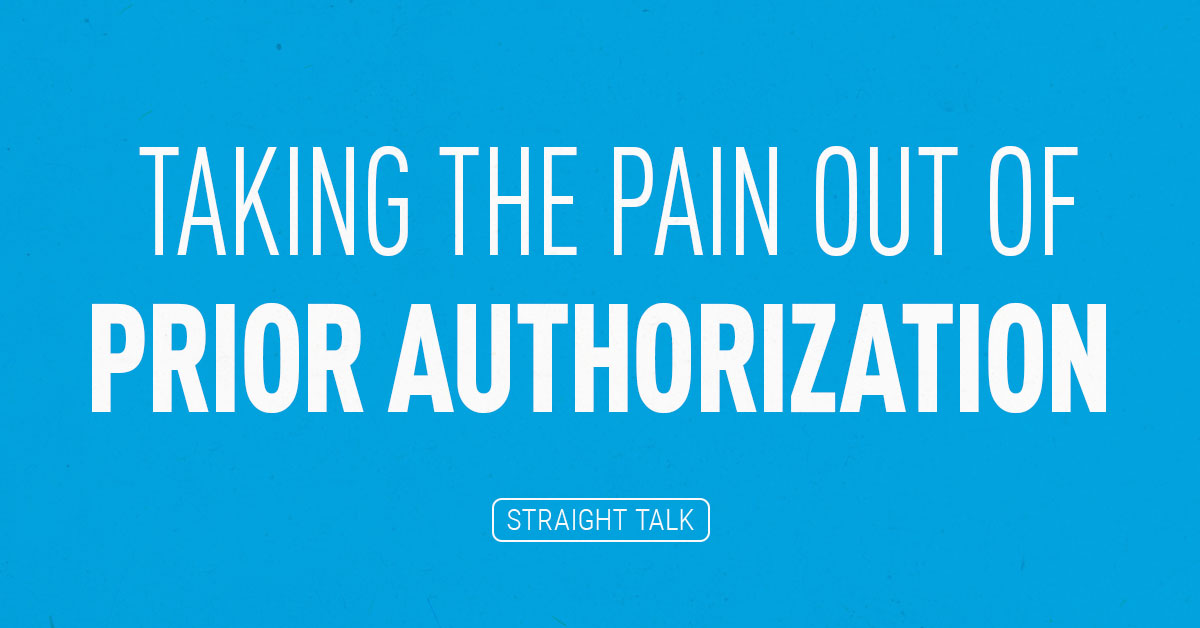Next time you are hanging around with a group of friends, maybe enjoying some crawfish or an LSU baseball game or some adult beverages, ask how COVID-19 affected them. Not to bring down the whole group’s mood, but to hear their shared experiences.
It’s cathartic. I’ve done it a few times now. And the most striking thing is how many of my friends and neighbors here in Louisiana are dealing with “Long COVID.” This is when certain symptoms of COVID-19 hang around for months or even years after the initial infection. It’s a very real thing. I personally had COVID-19 twice, once in October 2020 with noticeable symptoms, and again in January 2022 with zero symptoms (after I’d gotten two vaccines and a booster). The smell and taste loss from my initial infection in 2020 has still not come all the way back to normal, and many people have told me the same thing happened to them.
What Exactly IS Long COVID?
To help healthcare providers and patients understand what Long COVID means, the U.S. Department of Health and Human Services (HHS) has coordinated with medical organizations and government agencies to pen a formal definition of this condition:
“Long COVID is broadly defined as signs, symptoms, and conditions that continue or develop after initial COVID-19 or SARS-CoV-2 infection. The signs, symptoms, and conditions are present four weeks or more after the initial phase of infection; may be multisystemic; and may present with a relapsing– remitting pattern and progression or worsening over time, with the possibility of severe and life-threatening events even months or years after infection. Long COVID is not one condition. It represents many potentially overlapping entities, likely with different biological causes and different sets of risk factors and outcomes.”
I’ve been doing some research, and the best data today indicates that 1 out of every 13 people in the U.S. who get COVID-19 end up with lingering symptoms or conditions that don’t go away for months. Even years, in some cases. Roughly 7.5% of us. In a state like Louisiana, where it’s likely 3 million people caught COVID between 2020 and 2023, that would suggest there are more than 225,000 cases of Long COVID just in our state!
HHS, along with several other large organizations (including the American Medical Association, Kaiser Family Foundation, Elevance Health, other federal health agencies, etc.) have undertaken large, multi-year studies of long-term COVID-19 symptoms that just don’t seem to go away. In fact, the U.S. Centers for Disease Control & Prevention (CDC) lists the following symptoms as the COVID-19 effects that are mostly likely to hang around after you’ve recovered from the initial infection:
- Tiredness or fatigue that interferes with daily life
- Symptoms that get worse after physical or mental effort (also known as “post-exertional malaise”)
- Fever
- Difficulty breathing or shortness of breath
- Cough
- Chest pain
- Fast-beating or pounding heart (also known as heart palpitations
- Difficulty thinking or concentrating (sometimes referred to as “brain fog”)
- Headache
- Sleep problems
- Dizziness when you stand up (lightheadedness)
- Pins-and-needles feelings
- Change in smell or taste
- Depression or anxiety
- Diarrhea
- Stomach pain
- Joint or muscle pain
- Rash
- Changes in menstrual cycles
How Your COVID-19 Infection Could Affect Your Long-Term Health
You’ll notice several items in this list that affect heart health. Recently, Elevance Health’s Institute for Public Policy published in the JAMA Health Forum the results of a study that gave some alarming news about Long COVID and heart health. Individuals with Long COVID were more than twice as likely to have an irregular heartbeat than people who never got COVID-19. They were more than twice as likely than people who never had the virus to have a stroke, and three times more likely to have blood clots that traveled to their lungs and put their lives at risk.
It turns out Long COVID, including most of the durable symptoms we talked about above, can have significant effects on your long-term health.
So please, if you had COVID-19 at any point in the past three years, and some of the things we listed above happened and haven’t left you for months or even years AFTER your initial infection, PLEASE consult with your primary care provider as soon as you can. Some of the things on the list don’t seem all that bad, but just the fact that your infection might have triggered them and they are still hanging around could be a sign of a more serious problem, and you might need extra screening.
The Straight Talk is, Long COVID is a real thing, and if you are experiencing Long COVID symptoms, you need to discuss it with your healthcare provider and follow any recommendations on screening or intervention. We are learning more about Long COVID every single day, and there might be effective ways to treat those symptoms so it lowers the effects on your daily life. It can’t hurt to ask!





Thanks for the information and advice. I will share it with my employees.
I know the best way to avoid Long Covid & that is to not catch Covid 19 in the first place. I am one of five siblings, three of us in La., one in Texas and one in Missouri. None of us ever contracted Covid 19 in spite of being surrounded by it. Lucky? Good gens? Whatever! But I won’t get Long Covid.
Charlie Williams
can you be left with long Covid after a very light case (cold symptoms only) even when botha vaccinated and fully boosted?
Long Covid affects many people, but the occurrence in any particular person is quite unpredictable. We are still studying the risk factors that might lead someone to be more likely to get Long Covid, but it’s early days in that research. If you are worried, you should visit your PCP and express that worry directly to your trusted physician. I’m comfortable you won’t be the first person they’ve seen with lingering symptoms from a Covid infection!
Take care!….mrb
Yes. Many cases of long COVID after a mild infection.